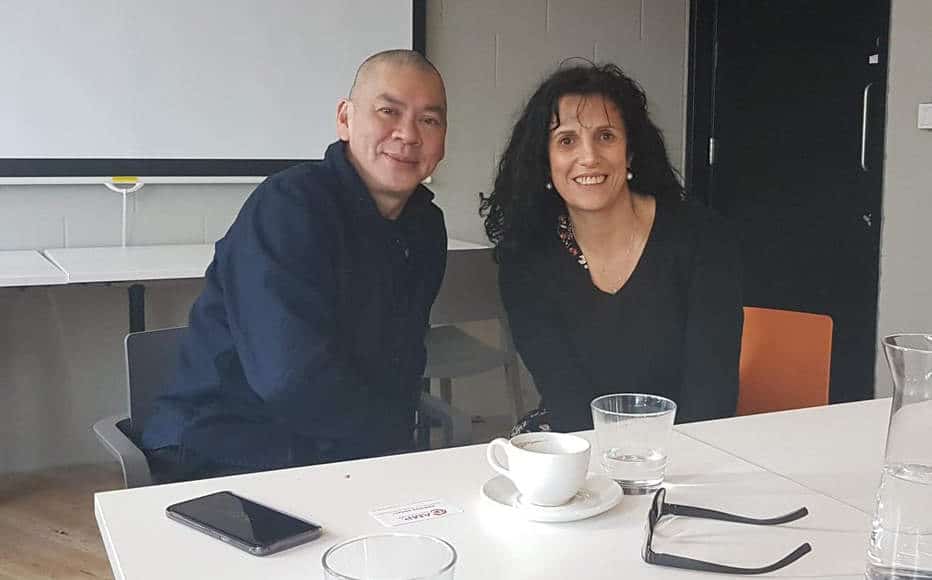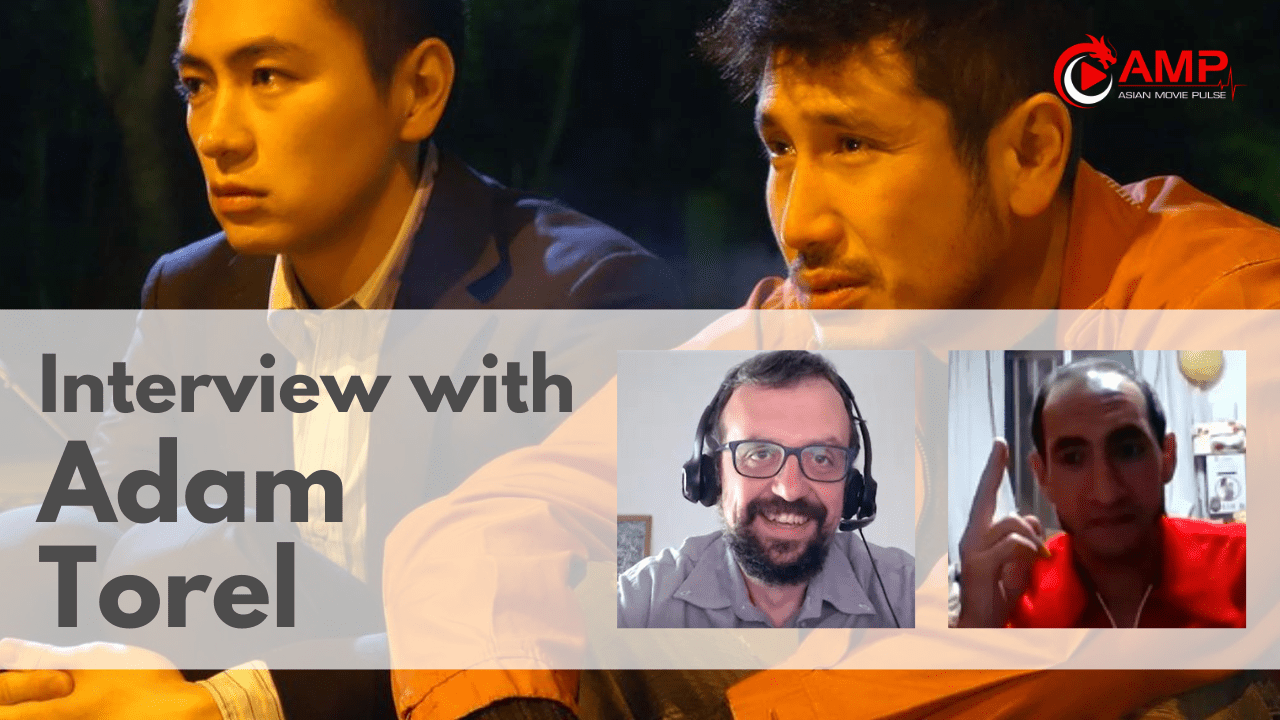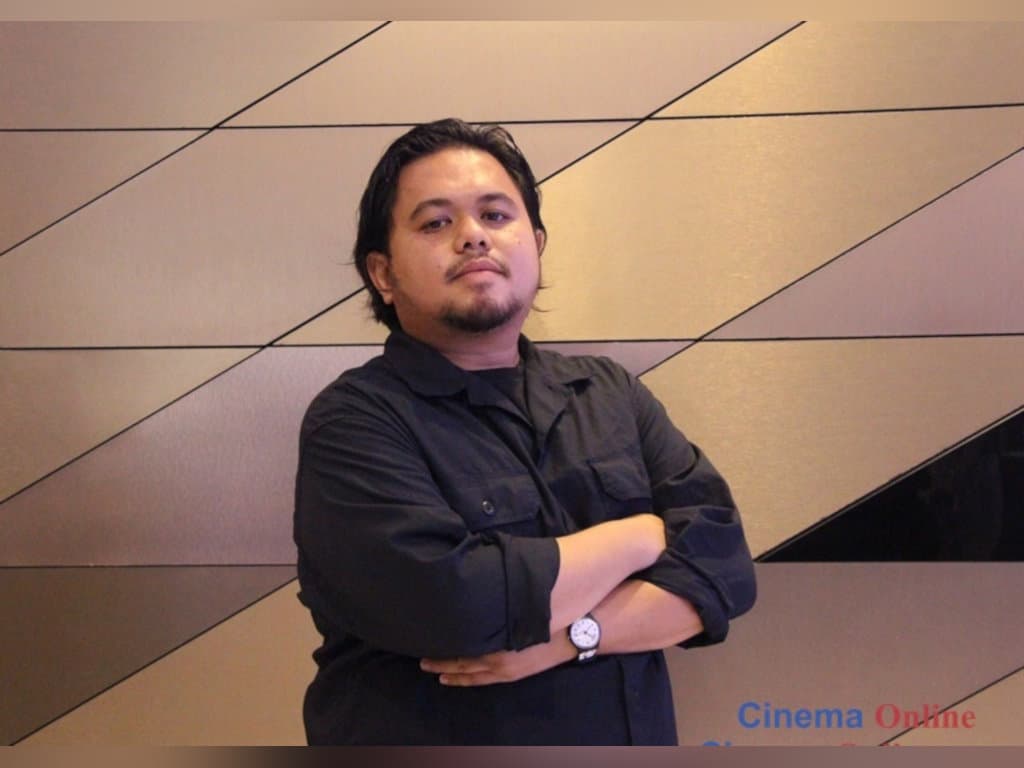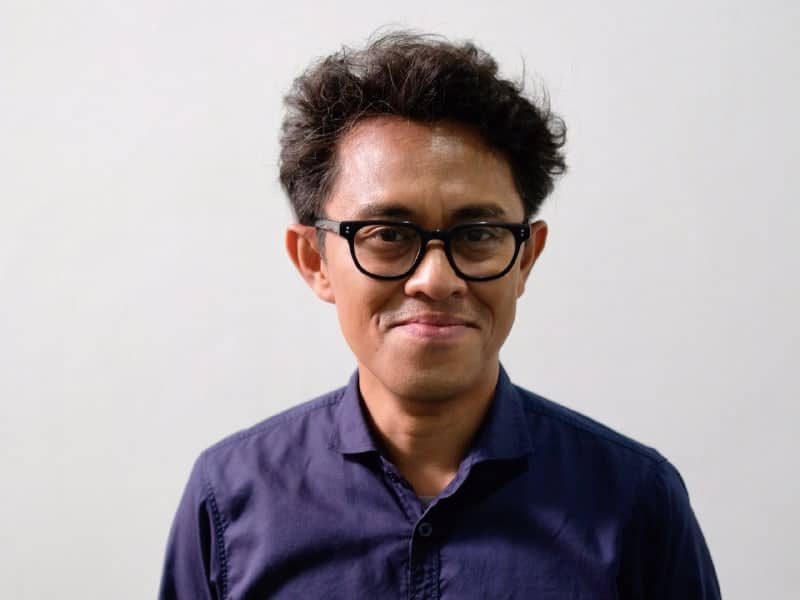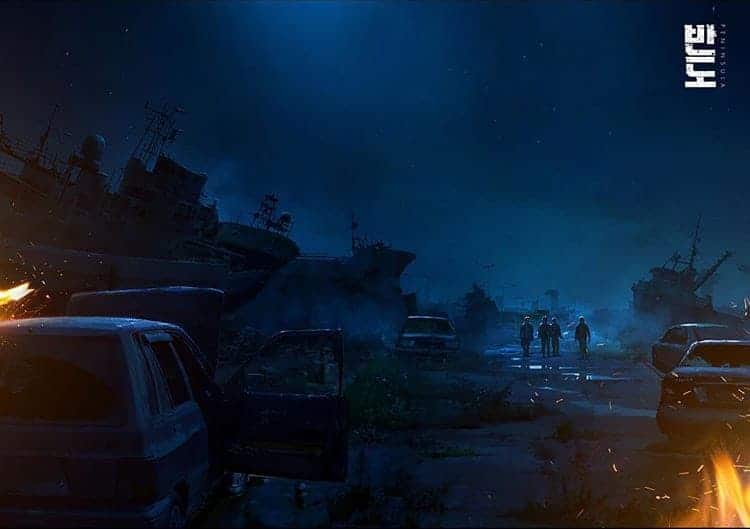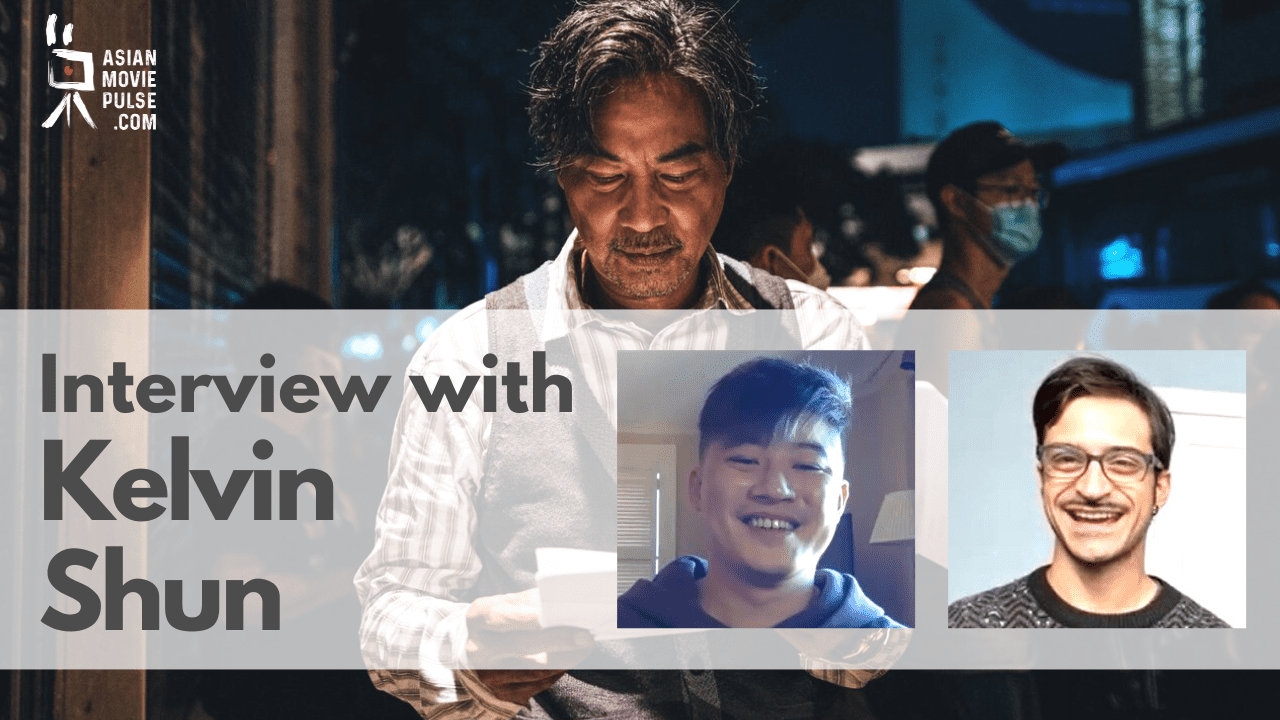Director Tsai Ming-liang is one of the most distinguished directors of the new cinema movement in Taiwan. Born in Malaysia, he moved to Taiwan at the age of 20. There he graduated from the Drama and Cinema Department of the Chinese Cultural University of Taiwan in 1982 and went on working as a theatrical producer, screenwriter, and television director in Hong Kong.
His first feature film was “Rebels of the Neon God” in 1992, a film about troubled youth in Taipei, and with his second film, “Vive L'Amour” in 1994, won the Golden Lion (best picture) at the 1994 Venice Film Festival. Along with Edward Yang and Hou Hsiao-hsien, Tsai Ming-liang is one of Taiwan's most prominent Taiwanese directors.
In occasion of the screening of his VR film “The Deserted” and a selected retrospective of his movies at the Taiwan Film Festival UK in London we speak with him about a different approach to VR cinema, his hate of script-writing, the future of films and a fish called Pom Pom.

First of all – as an introduction – can you tell us how you got to make a VR movie?
Three or four years ago, all of a sudden, lots of massive VR companies approached me asking to make a VR film, three or four of them. It felt very odd; “why are they asking me to make a VR film?” I thought, and I wasn't interested at all in VR back then, especially because at the time this VR technology was used in Taiwan only for the gaming industry rather than in films, and I was wondering what this 360 degree “thing” had to do with me and my films. HTC was actually the last company that approached me and asked me to make a VR film and so I decided at least to have a look into what VR films are. I was invited to see lots of VR commercials and promos in different studios in Taiwan, and I felt it was very confusing and chaotic, all these people trying to tell you everything from everywhere. I thought it was definitely too chaotic and that it wasn't for me, but then during this journey, looking at all these VR works, I came across a young artist from a studio and his work was actually based on photography and I saw the colors and the space in this VR “photo” and so I thought that there were some possibilities and I saw the potentials of a more artistic approach.

You said once: “To me, a screenplay is not a film. It continues to transform during shooting and I am in a constant state of anxiety because nothing is certain.” How did the VR interact with your Modus Operandi? Did it give you more anxiety or did it make it easier for you?
In all my 20 years and more of film-making career I always really disliked writing scripts (he laughs), because I feel it has only two functions; one is that other people are able to understand and work with you and the other one is actually to make the investors able to understand what they are investing in. Beside that, film is just film, screenplay it's not, screenplay is more like a draft. I never worry about finishing a script because in all my films I start shooting before I finish the screenplay, it is an on-going process. Also, I never depend on the film industry to make my own films. In recent years – because my approach is more free – I focused on making my own films and being far from the industry style. For example, in the film industry you must have a story, a narrative story, but in my more recent works is more about how you see the film. My approach is more about visual art and forms, it's not about “you have to hear a story by watching a film”, it is rather “just watch the film”. So the VR of “The Deserted” triggered me to be more conscious about the space, the audience is thrown into a space rather than in a story and because recently I have been more focused on the forms of films, making this film actually helped me to rethink about forms and space. My script for this film was just, like, a page. There is one shot in “The Deserted” where the two characters are on a mattress laughing and in that space I wanted to create a sense of uncertainty so my art director and I glued all these shards of paper on the walls of the room for about one month to create this uncertainty and this is about structuring a space more than a story, it's about form.
So the set design becomes part of the storytelling even more.
Yes, when I was making this film I wanted the texture of the space to come out for example in the living room where the couch is, there are some drawings / paintings on the wall and we repaint it many times one on top of the other to make the texture of the wall come up.

“Goodbye Dragon Inn” was a tribute to Cinema as a very physical space and the interaction of the audience with it. But it's also a farewell to that kind of cinema, as Miao Tien says: “No one goes to the cinema any more”. And now with VR … “puff” … there is no cinema at all. Can you talk about this changing interaction with the public? Is VR an answer to that?
We gradually discover that we cannot resist the passage and changing of time. Because we experienced the different times, we compare a lot the past and the future. The Golden time of Cinema that you, like me, might have experienced, as we share the same generation, had a very particular atmosphere. Maybe now people watch all the same type of commercial cinema in the World but I grew up in Asia and it was very different from Europe. In Asia at the time, you were only able to see commercial films but in Europe you were be able to see also the films from Fellini, Visconti. This never happened in my local cinemas, then later on, when I went to Taiwan I was able to see Visconti's and Fellini's films. I feel time has changed a lot, now you can see films in many different ways. In the past, the local cinema would decide what to show to the local audience, and so it was often the business behind the cinema and the government behind the cinema to tell people what to see but now we have Internet, museums, galleries. I feel that now young people can see films in very different ways, you can see them in museums, in cinemas, on internet, but VR is very special because once you put on the VR head-set it is a cinema on your own, you are the cinema. But I am not saying the VR is replacing traditional cinema, it's just a different type of cinema.
VR could be very flashy and gimmicky, using special effects just for the sake of showcasing technology; your film is quite tame in that sense. Is it your way to direct the attention of the viewer?
At the beginning of this experience, I was asking HTC why they wanted me to make a VR film. If they wanted to develop the concept more toward the technology aspect then I would have said no. At the time I thought that VR is a different tool but I was still going to make “my” films. But in this collaboration with HTC, they were actually approaching me because they wanted a more artistic content, from an artist. Rather than showing off the skills, they wanted to have a real content of a VR film. At the beginning, I was told I could only make a 20 minute film of this art film, but I was like: “Why can't we make it longer?
It works very well, the way it is…
The most difficult part of making this VR film was actually how to adapt to the technology, because it had lots of limitation at the time, the technology was just not there yet, so during the making of the film, they also had lots of technology restrictions, like the length. So this journey was actually much more difficult than the others.

Ghosts are returning characters here but also is the fish. There was a fish in “What Time is it There” that was believed to be a reincarnation. Is your love for spiritual fish something that comes for a tradition / folklore or a personal experience?
(He laughs a lot) Actually the person who likes fish is him (pointing Lee Kang-sheng in the room). The first time this fish appeared in a movie was in the film “The River”. When we were filming in his apartment, there was a fish tank with a fish called Pom Pom; Lee had this fish since he was a child so Pom Pom was already an adult fish then. The same fish starred in “What Time is it There” but it passed away after the film wrapped. So then, when I was about making the film “Face” and I needed a fish, I searched for a fish looking exactly the same as Pom Pom.
Did you do a casting for the fish actor?
(He laughs out loud) Yes, I did! And you can say that in “The Deserted” the fish is actually the ghost of Pom Pom.
That is why he (Lee Kang-sheng) looks so familiar with the fish!
No, that is because our fish is a very good actor, very talented! There was always a fish in my life, I have a good relationship with fish.

Last question, where do you think the future of films will go from here?
Film has lots of possibilities but in reality the film market is becoming more and more monotone, everybody just watch the same type of commercial films, films are more and more like a product. For example, in China or Asia or maybe Europe is much more difficult to make independent movies because cinemas won't play those films. It doesn't matter the technology, technology is just a tool so I am more concerned about how to protect the freedom of creating films, where is the freedom of film-making rather than thinking about the technology and market. The freedom of films. For example in the collaboration with HTC, they were still looking for commercial opportunities, but then working on “The Deserted” they realized that these type of VR films can work with museums and galleries. You have more diverse ways of presentation; if you work with normal commercial cinemas, you will have to fit into those certain criteria they are looking for. There is an important movement in the recent years, films and museums are collaborating and this is something very interesting and it needs to be emphasized. For example, in 2009 the Louvre Museum invited me to make the film ‘Face” and that was actually re-imagining film in the Museum collection (“Face” was the first film to be included in the collection of the Louvre Museum's “Le Louvre s'offre aux cineastes”). That really broadened the freedom of film-making and made film into part of the contemporary arts. So in the future, I see films going in two directions, two different types of market, one is the commercial and one is in museums. I think this is already happening. When you were a kid growing up in Italy (country of Arts) you wouldn't have imagined seeing films in museums. I don't think this is a bad time for films; it is actually a very fresh and new time.



